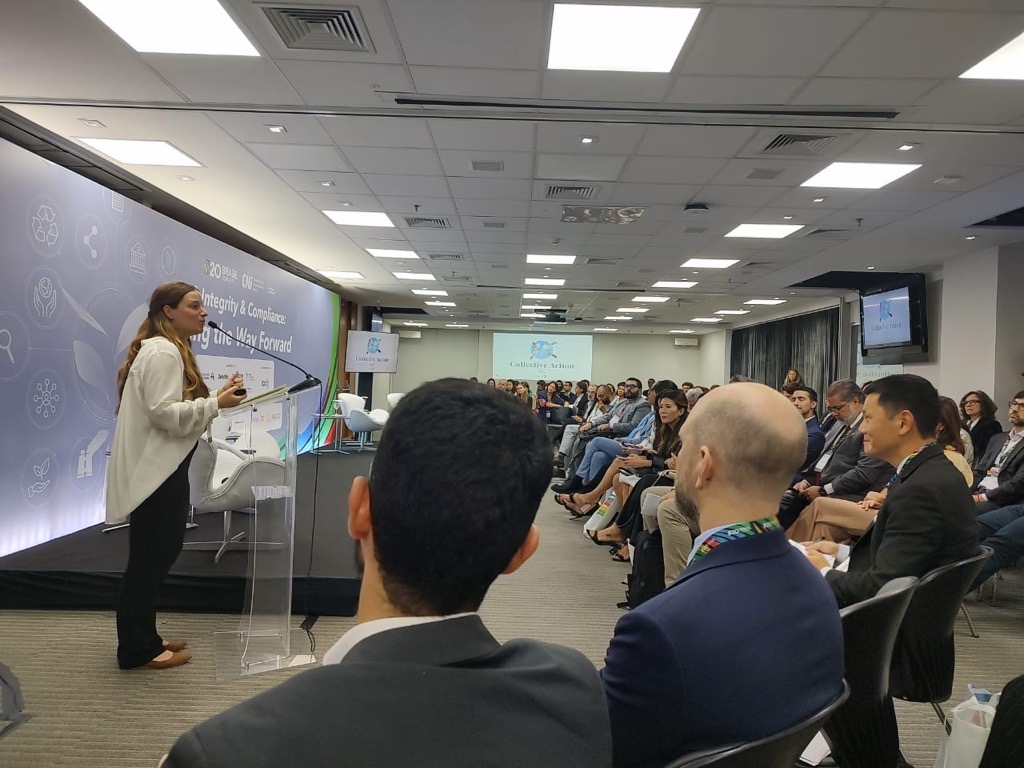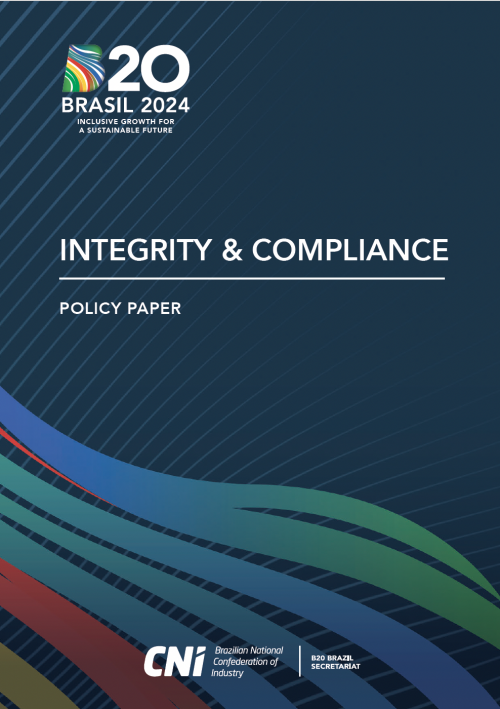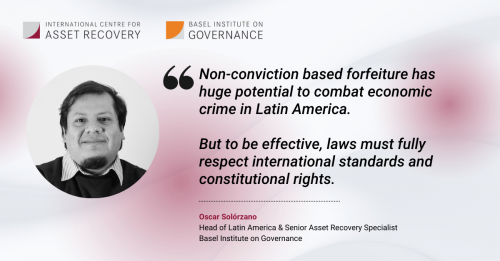B20 Brazil rings in a new era for Collective Action
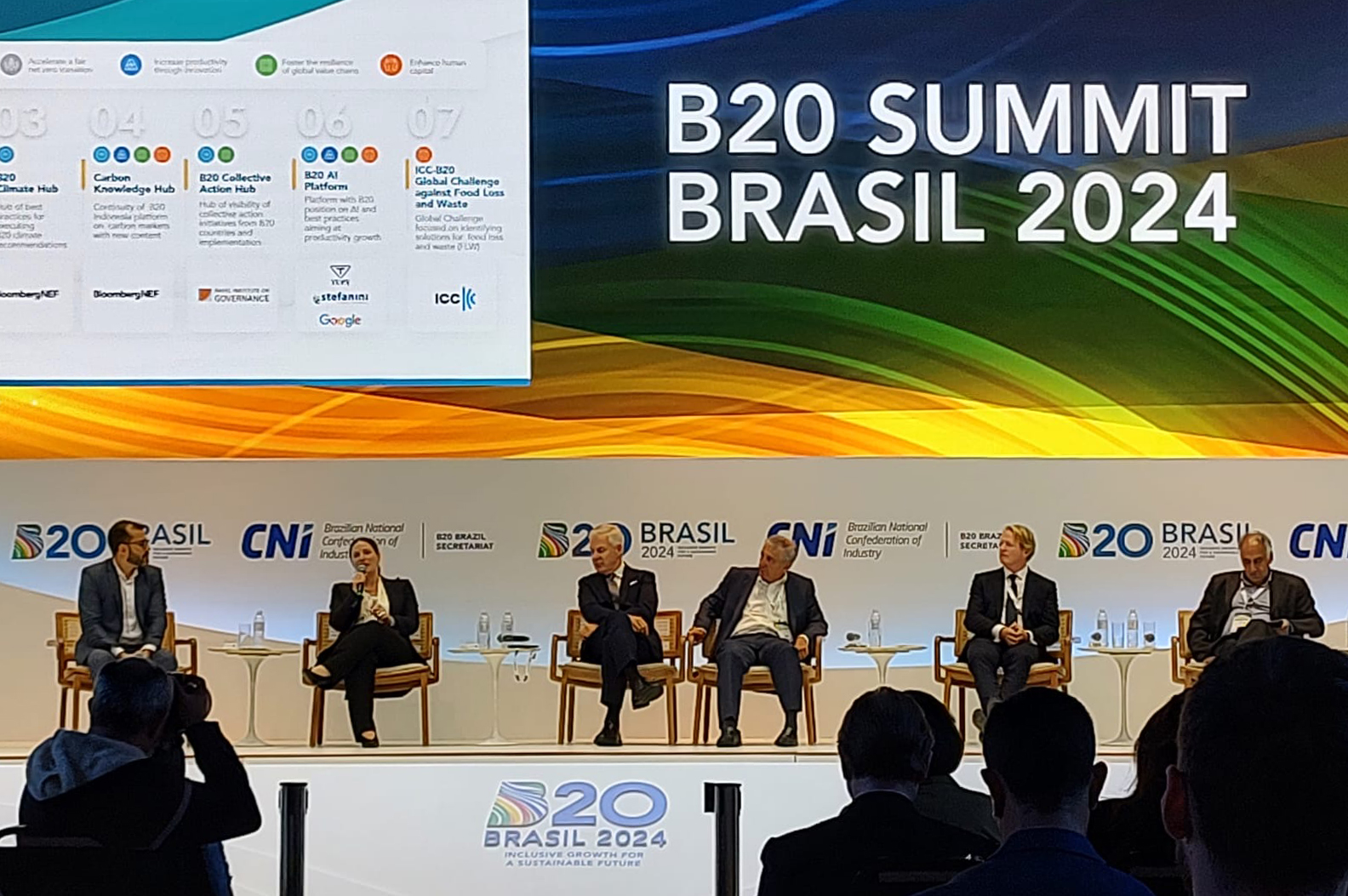
We are thrilled that anti-corruption Collective Action has received fresh impetus under the Brazilian presidency of the B20 – the voice of business of the G20 intergovernmental forum. This reflects a shift in mindset among global business leaders, towards recognising the power and necessity of multi-stakeholder collaboration for anti-corruption and integrity.
Fostering Collective Action initiatives is one of three policy recommendations of the B20 Integrity and Compliance Task Force. These were handed over to G20 leaders at the B20 Summit in São Paulo on 25 October 2024.
A Key Performance Indicator or KPI will track countries’ adoption of concrete Collective Action approaches and initiatives, based on the data in the Basel Institute’s B20 Collective Action Hub – which itself has been selected as a B20 legacy project.
So what’s new and why does it matter?
Return of the Integrity & Compliance Task Force
"I was pleased to represent the Basel Institute at this year’s Summit, joining political and business leaders from around the world plus representatives from international organisations and financial institutions. The Basel Institute has supported the B20 process for over a decade, including this year as Network Partner to the Integrity & Compliance Task Force."
– Scarlet Wannenwetsch, Senior Specialist, Collective Action
The B20 Integrity & Compliance Task Force has existed since 2011, with the exception of the Chinese and Indian presidencies. It convenes a variety of stakeholders engaged in anti-corruption, compliance, integrity and transparency in business. Unlike other B20 Task Forces it has a direct counterpart: the G20 Anti-Corruption Working Group.
It is thus a powerful voice for business integrity on the global stage. Its recommendations also reflect evolving understandings of how businesses should integrate ethics and integrity into their systems and value chains.
Responsible business, ethical leadership and Collective Action
The Task Force’s 2024 recommendations include longstanding B20 priorities that encourage the implementation of integrity and anti-corruption measures to enhance responsible business. New this year, there is also a focus on promoting ethical leadership to cultivate inclusive growth.
Though anti-corruption Collective Action has been a reoccurring theme under the B20 over the past 12 years, this year we are pleased that:
- Collective Action is one of only three recommendations. This highlights the weight and importance given to Collective Action as a tool for companies to engage and lead in the fight against corruption.
- The Collective Action recommendation is specific. It calls on B20 and G20 leaders to stimulate Collective Action by “promoting collaboration of public sector, private sector, and civil society to strengthen integrity and resilience in the value chain”.
- There is a strong focus on “developing specific approaches for situations related to environmental and human rights issues”, recognising the synergies between ethical business and these areas.
- The recommendation calls on governments to strengthen their own engagement in Collective Action, calling out Integrity Pacts and High-Level Reporting Mechanisms that help to protect public procurement from corruption and unfair practices.
- A Key Performance Indicator (KPI) will enable scrutiny and monitoring of countries’ uptake of Collective Action approaches and initiatives. This is a first in the history of the B20.
- The B20 Collective Action Hub has been chosen as one of five B20 Brazil legacy projects. This demonstrates clear buy-in and support for the continuation of the KPI and key Collective Action tools beyond the current B20 cycle.
Tracking support for Collective Action among G20 countries
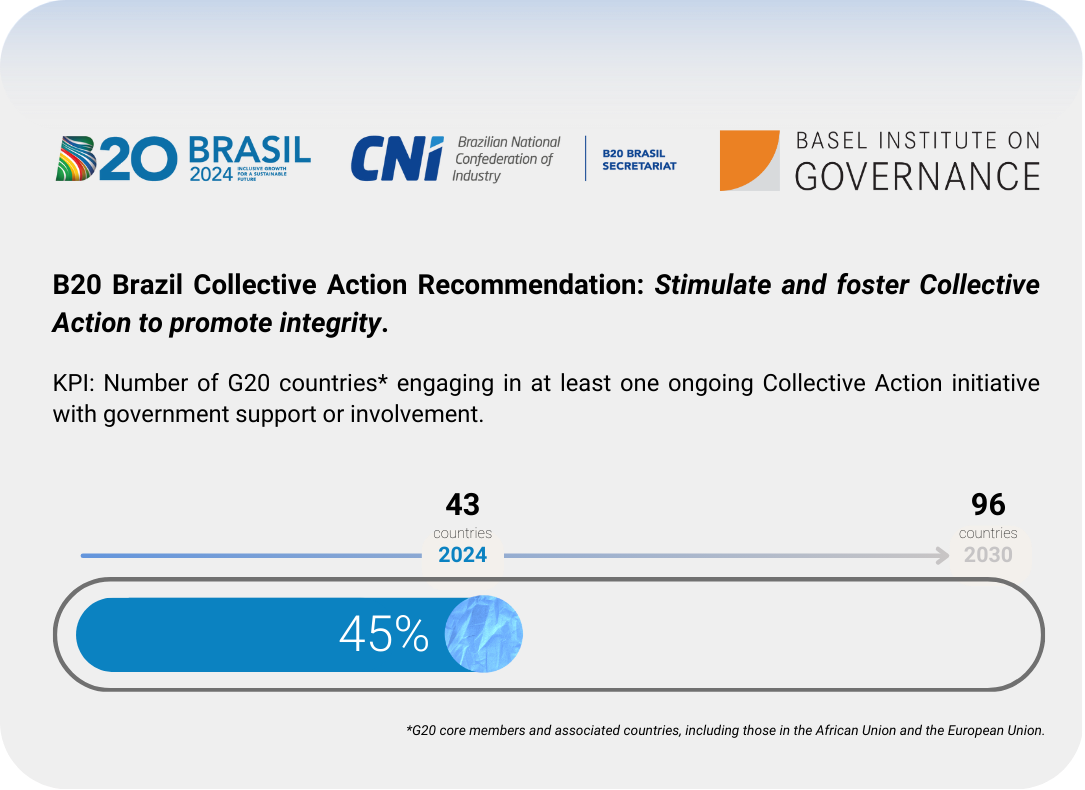
The newly developed 2024 Collective Action KPI measures the number of G20 governments that are engaged in or provide support to at least one Collective Action initiative. The scope of “G20 countries" is wide, comprising core members and associated members, including all countries in the African Union and the European Union.
The measurement is based on data from the B20 Collective Action Hub, which has a global database of Collective Action initiatives.
Currently, 43 of the 96 G20 governments – or 45 percent – support or are engaged in at least one Collective Action Initiative. This result demonstrates the success of two decades of effort by the Basel Institute and others who champion multi-stakeholder approaches to business integrity. But it also highlights room for improvement. The aim is to reach 100 percent by 2030.
This new KPI allows the B20 and the Collective Action community to track something many companies and practitioners identify as crucial for the success of Collective Action: government support. Government support for Collective Action strengthens incentives for companies to engage and invest in corruption prevention.
Learn more
- Download the 2024 B20 Integrity & Compliance Policy Paper
- View the panel discussion on day 2 of the B20 Summit in Brazil
- Learn more about the B20's work on integrity, compliance and Collective Action

